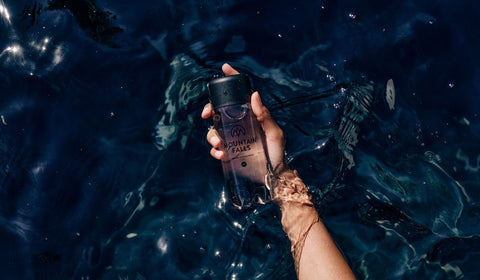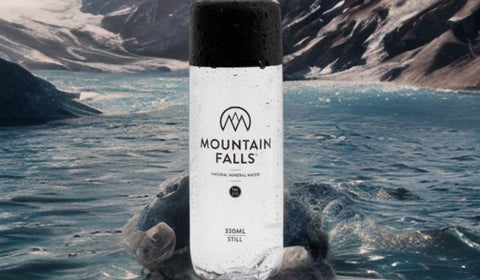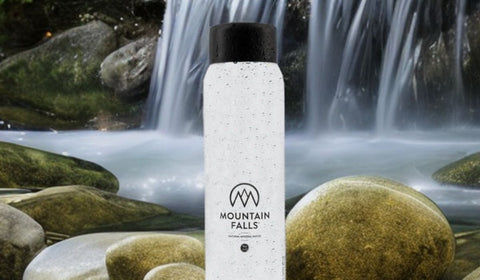Calculate Your Daily Water Intake: Stay Hydrated & Healthy
We've all heard the advice: drink more water. But how much is enough? It turns out, the amount of water we need to drink each day isn't a one-size-fits-all number. It ranges from about four to six cups of plain water, but even that's just a starting point. Our individual needs vary based on several factors, including our diet, activity level, and the climate we live in.
Staying hydrated is crucial for our health, yet many of us fall short of our daily water intake goals. Understanding our body's unique needs can help us stay on track. Let's dive into what influences our hydration requirements and how we can ensure we're getting enough water every day.
Key Takeaways
- The ideal daily water intake varies significantly among individuals, influenced by diet, activity level, and environmental factors, typically ranging from 4 to 6 cups of plain water.
- Beyond direct consumption, hydration can also be obtained from other beverages and water-rich foods, emphasizing water's role as a central component of a healthy diet.
- While the advice to drink eight glasses a day serves as a general guideline, actual fluid needs account for all sources of hydration and depend on personal health status, physical activity, and climate.
- It's possible to consume too much water, leading to hyponatremia, especially during intense activity without proper electrolyte replacement, though this is rare for most people.
- Drinking water has extensive health benefits, including supporting physical performance, boosting metabolism, aiding weight management, improving cognitive function, and reducing calorie intake when substituting for sugary drinks.
- Calculating personalized daily water needs can be simplified to half an ounce of water per pound of body weight, adjusted for individual lifestyle factors like activity level and climate, to maintain optimal hydration.

Water: How much should you drink every day?
What Are the Health Benefits of Water?
Water is the lifeline our bodies depend on. It's essential for maintaining bodily functions and overall health. For instance, staying hydrated keeps your skin supple, ensures your organs function optimally, and facilitates the elimination of waste through urination, perspiration, and bowel movements. Adequate water intake also aids in maintaining a Normal Body Temperature, cushioning joints, and protecting sensitive tissues within the body. It's not just about quenching thirst—water consumption is integral to our wellbeing.
What About the Advice to Drink 8 Glasses a Day?
The advice to drink eight glasses of water a day is more a guideline than a strict rule. According to the Mayo Clinic, men should aim for about 15.5 cups (3.7 liters) of fluids a day, and women should aim for 11.5 cups (2.7 liters). These recommendations include fluids from water, other beverages, and even food. Remember, individual needs vary greatly depending on factors like physical activity, environment, and health status. It's important to listen to your body and drink when you're thirsty.
Is Water the Only Option for Staying Hydrated?
Although water is a fantastic way to stay hydrated, it's not the only option. Our daily fluid intake can also come from other beverages and food. Many fruits and vegetables, such as watermelon and spinach, are high in water content and contribute to hydration. Beverages like milk, juice, and even coffee add to our daily fluid intake. However, it's essential to note that while these sources contribute to hydration, water should remain a central part of our intake for optimal health benefits.
Should I Worry About Drinking Too Much Water?
While staying hydrated is crucial, it's also possible to drink too much water, a condition known as hyponatremia or water intoxication. This condition occurs when the balance of electrolytes in your body is disrupted by a large intake of water. However, this is relatively rare and generally occurs in specific situations, such as intense physical activity over long periods without adequate electrolyte replacement. For most people, drinking when thirsty and spreading out water consumption throughout the day should keep hydration at healthy levels without the risk of overconsumption.

Benefits of drinking water
When we're talking about hydration, the perks extend far beyond simply quenching thirst. Drinking water plays a pivotal role in every aspect of our body's functionality. Let's dive into the myriad benefits that make water indispensable in our daily lives.
First off, it's essential for maintaining optimal physical health. Water aids in lubricating the joints, ensuring our movements are smooth and pain-free. For those of us embracing an active lifestyle, staying hydrated helps to ward off injuries and ensures our performance doesn't dip.
Furthermore, our metabolic rate gets a significant boost from adequate water intake. Studies have shown when we drink chilled water, our body expends energy to heat it to body temperature, which in turn, accelerates the metabolism. This process aids in weight management, as a faster metabolism means our body is more efficient at burning calories.
Another benefit that can't be overlooked is water's role in suppressing appetite. Drinking a few glasses before meals can make us feel fuller, reducing the amount we eat and aiding in weight loss. In fact, a small study highlighted that participants who preluded their meals with water consumed 22% less than those who didn't. This is a simple yet effective strategy for those of us looking to manage our calorie intake without feeling deprived.
Hydration also greatly impacts our cognitive function and mood. Even mild dehydration can affect our ability to concentrate, negatively impacting our work and overall productivity. By keeping our water intake in check, we're not just benefiting our physical body but also ensuring our mind stays sharp and focused.
Lastly, swapping out sugar-laden drinks for water cuts down our calorie intake dramatically, as water contains zero calories. This simple switch can have a profound impact on our overall health, reducing the risk of developing chronic conditions such as type 2 diabetes and heart disease.
The importance of water in our daily regimen is undeniable. From supporting physical performance to aiding in weight management and improving cognitive functions, the benefits are as clear as a glass of well-filtered water. Let's make a conscious effort to stay hydrated – our bodies will thank us for it.
How much daily total water do you need?
When we're diving into the topic of hydration, one of the most pressing questions we encounter is, "How much daily total water do we actually need?" It turns out, the answer isn't as straightforward as we might think. Daily total water intake is a number that can vary greatly depending on several individual factors such as age, sex, health status, and even the climate we live in.
Firstly, it's paramount to understand that our daily water needs are not just about the water we drink directly. Total water intake includes all sources of water: beverages we drink, water contained in the foods we eat, and of course, the water we drink in its pure form. For most of us, achieving our hydration needs means consuming around 4 to 6 cups of plain water daily. However, we should be mindful that this is a generalized guideline and not a one-size-fits-all solution.
Our bodies are incredibly individualized systems. Various factors such as our activity level, the medications we might be taking, and even the temperature outside, can significantly adjust our daily water requirements. Additionally, those of us who consume a diet rich in fruits and vegetables may find ourselves meeting a substantial portion of our hydration needs through our meals alone. This is because fruits and vegetables have a high water content, complementing our hydration in a natural and healthful way.
To stay adequately hydrated throughout the day, here are a few practical tips:
- Carry a water bottle: Having water on hand encourages us to drink more throughout the day.
- Opt for water over sugary drinks: Choosing water helps us avoid unnecessary calories and supports overall health.
- Flavor your water: Adding a wedge of lemon or lime can improve taste, making it easier to drink more water.
- Monitor your intake: Paying attention to how much water we consume daily can help ensure we're meeting our body's needs.
Remember, staying hydrated is fundamental to our overall health and well-being.

How to calculate how much water to drink a day
Determining the right amount of water to drink each day doesn't require extensive medical knowledge or complex calculations. It's about understanding our body's basic needs and some simple mathematics. A universally recommended method is intake based on body weight. This approach suggests that for every pound we weigh, we should drink half an ounce of water. Therefore, if we weigh 200 pounds, our target would be 100 ounces of water daily. This method allows for a customized hydration strategy that adjusts as our weight fluctuates, ensuring our body remains adequately hydrated.
Let's break down the calculation:
| Weight (Pounds) | Daily Water Intake (Ounces) |
|---|---|
| 150 | 75 |
| 200 | 100 |
| 250 | 125 |
Keep in mind, this calculation includes all fluids, not just water. About 20% of our daily fluid intake can come from food, particularly water-rich vegetables and fruits. This is a key point to remember as we aim to reach our hydration goals through a combination of beverages and food.
For those of us leading more active lifestyles or residing in hotter climates, our water intake may need to be higher. Physical activity and heat can increase our body's fluid requirements, so adjusting our intake to accommodate these factors is crucial. Similarly, certain health conditions and medications can alter our hydration needs, making it essential to consult healthcare professionals when necessary.
Remember, staying hydrated is about more than just drinking water. It's about listening to our body's signals, eating water-rich foods, and adjusting our intake to suit our individual needs and lifestyle. By applying these simple guidelines, we can maintain proper hydration and support our overall health and well-being.
Fluids to keep you hydrated
We've journeyed through the nuances of daily hydration, understanding that there's no one-size-fits-all answer. It's clear that our bodies are unique, and our water needs reflect this diversity. By tuning into our body's cues and considering our lifestyle factors, we can ensure we're adequately hydrated. Let's not forget, hydration isn't just about water; it's about maintaining a balance. So, let's embrace a mindful approach to hydration, one that supports our health and enhances our overall well-being. Remember, staying hydrated is key to unlocking a vibrant, energetic life. Let's make every sip count.
Frequently Asked Questions
Does beer count as water intake?
No, beer and other alcoholic beverages do not count toward your daily water intake. Alcohol can actually lead to dehydration.
How much water should I drink based on my weight?
It's recommended to drink half an ounce of water per pound of body weight daily. Adjust your intake based on activity level and climate.
Can food contribute to my daily water intake?
Yes, water-rich foods like fruits and vegetables contribute to your hydration goals. They are an important part of your overall fluid intake.
Why is staying hydrated so important?
Hydration supports vital bodily functions, including regulating body temperature, keeping joints lubricated, and transporting nutrients. It's crucial for overall health and well-being.
How does physical activity affect my hydration needs?
Physical activity increases your hydration needs due to water loss through sweat. Increase your water intake before, during, and after exercise to stay properly hydrated.
Do health conditions affect how much water I should drink?
Yes, certain health conditions and medications can affect your hydration needs. It's important to adjust your water intake accordingly and consult a healthcare provider for personalized advice.
Is it possible to drink too much water?
Yes, drinking too much water can lead to water intoxication or hyponatremia, conditions where the balance of electrolytes in your body is disrupted. Listen to your body and drink when thirsty.
What happens if I don't meet my daily hydration needs?
Failing to meet your daily hydration needs can lead to dehydration, affecting your energy levels, cognitive functions, and physical performance. In severe cases, it can pose serious health risks.
